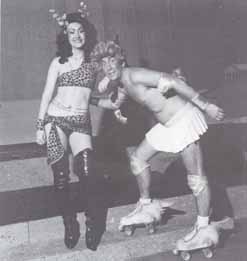Though not quite the oldest amateur theatrical society in the country (debate rages over who is!) TWODS’ history compares impressively with our very few contemporaries. Formed in 1889 as the Tunbridge Wells Dramatic and Musical Society, our forebear’s first production was of two plays, “A Blighted Being” and “My Preserver”, which were performed on a stage built by the actors themselves at the Gymnasium in Calverley Road. A large variety of straight plays followed at The Great Hall whilst the Tunbridge Wells Operatic Society, formed in 1890, began staging more musical shows at that same venue. One of the earliest productions was Gilbert and Sullivan’s “The Pirates of Penzance”, a show that has been revisited no less than six times during the society’s long history.
Another Gilbert and Sullivan operetta, “The Mikado”, was presented in 1904 when the Dramatic and Musical Society found a new home at the newly-built Opera House and “The Gondoliers” became the first performance credited to Tunbridge Wells Operatic and Dramatic Society after the two groups merged in 1911. The Society’s activities were understandably interrupted by The First World War but by 1922 they had returned with “The Mikado” and presented “Iolanthe” and “The Geisha” the following year. This musical comedy by Sidney Jones, Owen Hall, and Harry Greenbank was an extremely popular show at the time having enjoyed the second longest run of any musical at Daly’s Theatre in London’s West End.
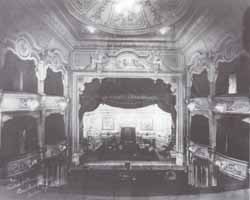
With the exception of the Gilbert & Sullivan operettas, many of the productions staged by the Society in these years will be largely unknown to modern theatre-goers. They were, though, well-loved at the time and had long professional runs in London and on Broadway before being a popular choice for amateur groups. “Florodora”, “Miss Hook Of Holland”, “The Quaker Girl”, “The Duchess of Dantzig”, “The Arcadians”, “The Belle of New York”, and “San Toy” all represented the most modern of stage shows when they were staged by the Society.
To understand the role of theatre in 1922, one has to consider the atmosphere of the period. Only four years earlier the country had come through its most bloody war when tens of thousands of British soldiers had lost their lives. There was radio but no television. In fact, it was in 1922 that the BBC was licensed to produce the first regular radio broadcasts. On a more fundamental level, people made their own entertainment in this era and visiting the theatre was very much an outing. Even until the 1950s and 60s, Saturday night audiences at amateur, as well as professional, shows would wear evening dress, the women adorned with furs and jewellery. Many would come just to watch the audiences go into the show and this was no less the case with the Operatic Society. To actually be part of the entertainers on stage was an honour and a privilege.
Throughout this period the society continued to raise funds for local charities and between 1922 and 1929 alone handed over £645. The equivalent of nearly £30,000 in modern terms, the beneficiaries included the General, Homeopathic, Eye & Ear Hospitals, the District Nursing Association, the Maternity Home, the Children’s Convalescent Home, the General Hospital Building Fund, the Open-Air School for Delicate Children of Tunbridge Wells, the Hurstleigh Toddlers, and the Invalid Children’s Aid. Twenty years before the founding of the National Health Service, these donations must have been well received. 1933’s chosen charity, The League Of Mercy, benefitted to the princely sum of £50, which is in excess of £3,500 in modern terms. Even way back in 1904 it was recorded that the Society had already presented £500 to various local charities.
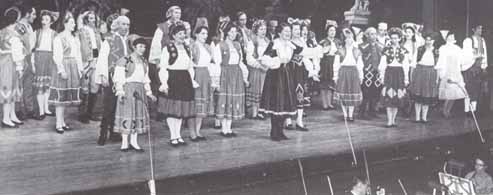
In June 1939, commemorating the 50th anniversary of Tunbridge Wells as a borough and the opening of the Assembly Hall, the Society was invited to stage “The Pirates of Penzance” as the first show at this new venue. When war broke out once again, local societies could not function normally but TWODS certainly played its part in the war effort. Many of the leading members of the Society attached themselves to ENSA and performed in concert parties for the troops. The Society picked up when it left off when war ended, though, and staged Gilbert and Sullivan’s “The Gondoliers” at the end of 1945 with all the profits donated to the Homeopathic Hospital.
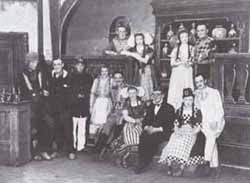
“The Gondoliers” was also the show chosen to mark the Society’s permanent move from The Opera House to the Assembly Hall in 1967. The Tunbridge Wells landmark had been the Society’s home for 63 years and hosted 85 of our productions but the building had primarily been a cinema for more than thirty years. The cinema had become increasingly uneconomic, though, and its owners planned to turn the venue into a bingo hall which would make it impossible to convert back into a theatre for TWODS productions. There were negotiations involving the Society to buy the venue but the required £48,000 could not be raised and the campaign to prevent the change of use was ultimately unsuccessful. The eventual conversion was further delayed by a dispute with the council but, by that time, TWODS had a new home: the Assembly Hall theatre. Fifty-four years later, we are very happy to still be there twice a year.
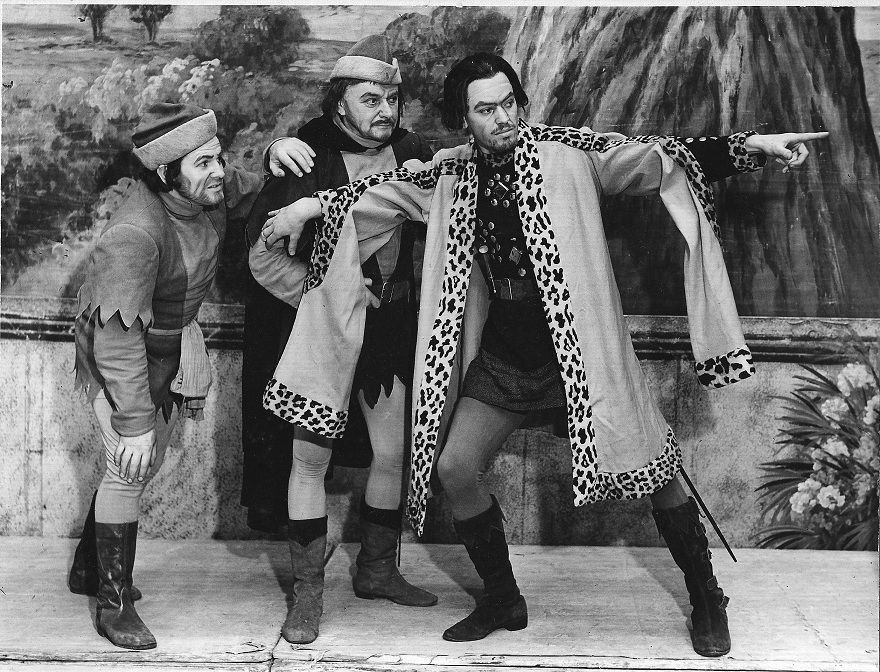
No-one can doubt the Society’s fondness for Gilbert and Sullivan’s comic operas but the works of Rodgers & Hammerstein have also been performed with great regularity. To date, “Oklahoma!” has been staged on five occasions, “Carousel” four times, “The King And I” and “The Sound of Music” three times each and “South Pacific” twice. Lerner & Lowe’s musicals have also proved popular with five productions of “My Fair Lady” over the years, three of “Brigadoon”, two of “Camelot”, and a 1975 staging of “Paint Your Wagon”. Naturally, “Oliver!” and “Guys & Dolls” have also featured repeatedly in the Society’s repertoire whilst “The Merry Widow” and “Die Fledermaus” show that we have not forgotten our operatic roots.
Whilst celebrating its history, TWODS has always looked for something ‘new’ to present to Tunbridge Wells’ audiences. In 1961, the Society performed the South East premier of a new show called “The Boy Friend” and in 1997 presented the South East premier of the newly-released production of “Me & My Girl” just four years after the show ended its 3,303 performance-run at London’s Adelphi Theatre. We were proud to present “Mack & Mabel”, newly-released for the amateur stage, in November 2000 and performed the South East premier of “Evita” in 2002. More recently, we have performed the musical versions of the hit movies "Legally Blonde", "Made In Dagenham", "Sister Act" , "Shrek: The Musical", and "Chitty Chitty Bang Bang" as well as the Broadway smash "A Chorus Line".
